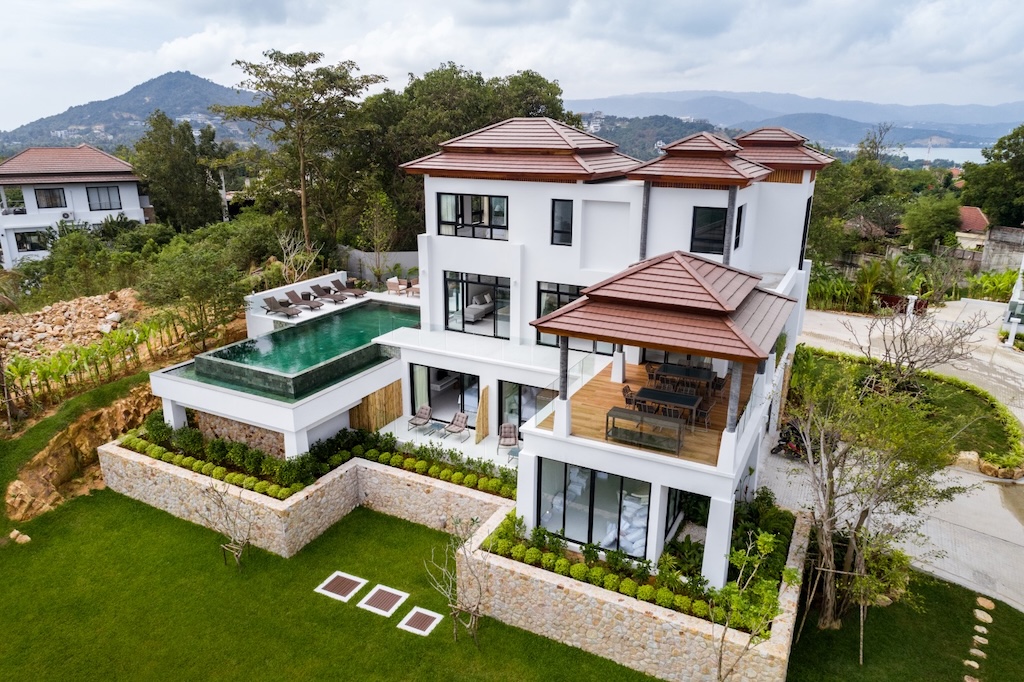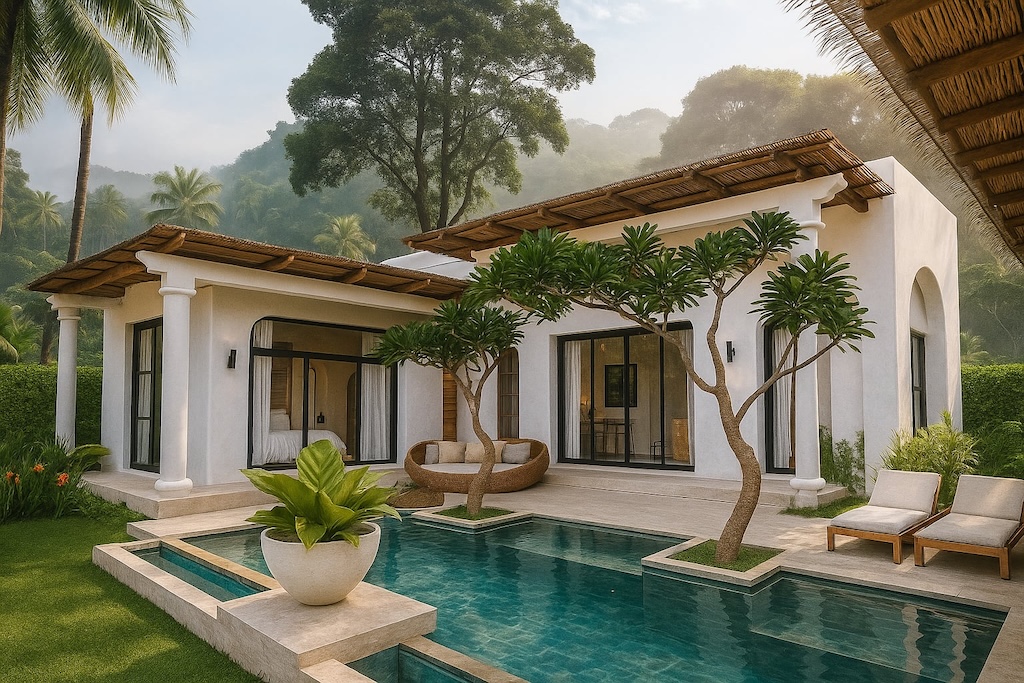5 Key Trends Shaping the Thailand Property Market
Thailand’s property market has reached an exciting turning point. Foreign investment has hit record levels and property prices in prime locations show remarkable strength despite global economic challenges.
The real estate scene in Thailand offers compelling opportunities. Smart investors need to understand the current market dynamics that shape investment decisions. Several factors have altered the map of Thailand’s real estate – from new foreign ownership regulations to changing buyer priorities.
This piece dives into five major trends that will shape Thailand’s property market this year. These insights will help you make smart real estate investment choices in the Kingdom.
Foreign Investment Driving Market Growth
Foreign investment has reshaped the scene of Thailand’s property market. The numbers tell an impressive story with a 58% increase in foreign direct investment over the previous year.
Chinese and Russian buyer demographics – The market sees Chinese investors at the forefront. They represent 45.8% of all foreign condo purchases and 46.7% of the total transaction value. Russian buyers have established themselves as the second-largest group in the market with 962 units purchased.
Popular locations for foreign investment In Thailand – Thailand’s property market offers several attractive locations for foreign buyers:
- 43.4% of foreign condominium transfers take place in Chonburi Province.
- Bangkok attracts 37.7% of all foreign transactions.
- Russian investors show strong interest in Phuket and Pattaya’s properties.
Effect on local property prices – Foreign investment has altered Thailand’s property values substantially. Prime location properties see annual value increases of 5-8% . The luxury property sector has grown remarkably with a 12% increase in demand. Foreign nationals now make up 35% of buyers in this premium segment.
The market shows remarkable growth with foreign condo transfers reaching 73.1 billion baht in 2023. This represents a 23.5% increase from the previous year. Developers now focus more on premium properties in areas that appeal to international buyers.
Shifting Consumer Preferences – Thailand’s property market shows a fundamental change in buyer priorities. Green practices and technology now lead the way, and these new priorities revolutionize how developers plan their projects nationwide.
Rise of eco-friendly developments – Green properties offer real benefits for your investment. These homes can cut running costs by up to 21% . Developers now add solar panels, rainwater harvesting systems, and green roofs to their projects. Green homes might cost 30% more than standard properties, but they attract buyers who want lasting value and care about the environment.
Smart home technology integration – Smart technology has revolutionized how Thai properties work. These features streamline processes and boost comfort levels. New developments now come with:
- Smart sensor platforms that can cut utility bills by 5-30%.
- Self-running systems that control lights and temperature.
- Security and appliance monitoring you can check from anywhere.
- Advanced security with built-in cameras and locks.
Younger buyers love these features. They want homes they can control from their phones and with voice commands.
Changing unit size preferences – Living space needs have changed, especially in luxury projects where flexible spaces matter most. Property designs now include:
- Spaces for multiple generations
- Home office areas
- Parking spots with EV charging
This trend reflects bigger changes in Thailand’s property scene. Multinational companies and Thai businesses want green and smart building features. This shapes how both homes and commercial buildings are built.
Regional Property Market Performance
The property market in Thailand shows unique patterns that shape investment opportunities in each region. Let’s get into how regions of all sizes are performing in today’s market.
Bangkok metropolitan area trends – Bangkok continues to offer strong investment prospects. Prime areas like Silom, Sathorn, and Sukhumvit deliver rental yields of 4-5% per annum. Emerging suburban areas such as Bang Na, Ratchada, and On Nut provide even better yields of 5-6%. The city’s property market remains resilient and single-detached house prices have increased by 2.4% year-over-year in Q1 2024.
Emerging investment hotspots
Pattaya’s property market is a chance to earn compelling returns, with average rental yields reaching 6.11%. New developments have reshaped the scene. Jomtien leads new condo supply with 43% of launches, while Phra Tamnak follows at 28%.
Chiang Mai presents a unique investment landscape that benefits from:
- Completed ring roads and highway projects improving accessibility
- Light Rail Transit (LRT) system development enhancing connectivity
- Growing interest from Chinese investors
Tourist destination property dynamics
Tourist hotspots can generate most important returns. Phuket’s residential market stands out with prices expected to rise by 10-15% this year. The island’s condo unit sales have jumped from 500-600 units yearly to 2,000 in 2023.
Popular tourist areas like Patong, Kata, and Kamala deliver rental yields between 5-7% per annum.These locations benefit from steady short-term rental demand during peak tourist seasons. The yields may vary based on seasonality.
Government Initiatives and Market Stimulus
Thailand’s government has just rolled out new rules that will change how you can own property there. The Cabinet’s latest decisions could open up exciting new ways for you to invest in Thai real estate.
New ownership regulations for foreigners – You now have better chances to own property in Thailand. The government is looking at allowing foreigners to own up to 75% of condominiums instead of the previous 49% in popular areas like Bangkok, Phuket, and Pattaya. Better yet, property lease terms are looking to increase to 99 years instead of 30. This gives you much more security when you invest for the long term.
Tax incentives and fee reductions – The government’s new incentives will save you money through:
- Transfer registration fees dropped from 2% to 0.01%
- Mortgage registration fees reduced from 1% to 0.01%
- These cuts work for properties worth up to 7 million baht
These benefits last until December 31, 2024, and should boost GDP by 0.5%. Thai nationals get the most benefits from these incentives, but the changes make the whole property market more dynamic.
Market accessibility effects
Buying property in Thailand has become easier, though some rules still apply. Foreign buyers can now look at different ownership options through BOI promotion or set up Thai companies with foreign control using preferential voting rights. The government wants to make the market more open while making sure local interests stay protected and foreign enclaves don’t pop up.
These changes help the affordable housing market the most, with special deals for homes under 3 million baht. The government wants to boost property sales but also makes sure the market grows steadily and Thai citizens’ housing needs come first.
Conclusion
Thailand’s property market shows exceptional momentum in 2024. Record foreign investments and the government’s strong backing fuel this growth. New opportunities await investors through bigger foreign ownership quotas, longer leasehold terms, and attractive tax benefits.
The market continues to grow steadily, especially when you have prime spots in Bangkok, Phuket, Koh Samui and Pattaya offering rental yields between 4-7%. Properties with smart home technologies and eco-friendly features now sell at premium prices. These features reflect buyers’ priorities and their potential for long-term value.
Stay informed about Thailand’s real estate market developments through our newsletter. The market’s future looks promising thanks to government stimulus programs, strong regional performance, and increasing foreign interest in the Kingdom.
Property values keep climbing in strategic locations. The new ownership rules have made the market more available than ever. Thailand’s lasting appeal as a prime investment hub creates exciting possibilities. Local and international investors can now build stronger real estate portfolios easily.
FAQs
Q1. What are the current trends in foreign investment in Thailand’s property market? Foreign investment in Thailand’s property market has seen a significant increase, with Chinese investors leading the way, followed by Russians. Popular locations for foreign investment include Chonburi Province, Bangkok, Phuket, and Pattaya. This surge in foreign interest has led to annual property value increases of 5-8% in prime locations.
Q2. How are consumer preferences changing in the Thai real estate market? Consumer preferences are shifting towards eco-friendly developments and smart home technology integration. Sustainable homes can reduce operational costs by up to 21%, while smart technology features can cut utility costs by 5-30%. There’s also a growing demand for adaptable living spaces that accommodate multi-generational living and work-from-home needs.
Q3. What are the rental yields like in different regions of Thailand? Rental yields vary across regions. In Bangkok’s prime areas, yields average 4-5% per annum, while emerging suburban areas can offer 5-6%. Pattaya boasts average rental yields of 6.11%. Tourist hotspots like Phuket, particularly in areas such as Patong, Kata, and Kamala, can yield between 5-7% per annum, though these may fluctuate seasonally.
Q4. What recent government initiatives have been introduced to stimulate the Thai property market? The Thai government has approved increasing foreign ownership quotas in condominiums from 49% to 75% in key areas. They’ve also extended property leasehold terms from 30 to 99 years. Additionally, there are significant tax incentives, including reduced transfer and mortgage registration fees for properties valued up to 7 million baht, valid until December 31, 2024.
Q5. Is it profitable to invest in Thai real estate? Investing in Thai real estate can be profitable, particularly in prime locations. Bangkok’s Sukhumvit area has shown a remarkable 234.6% return on investment, with other areas like Central Lumpini and Riverside also demonstrating strong ROIs. The combination of government stimulus measures, strong regional performance, and growing foreign interest suggests a promising outlook for property investment in Thailand.





